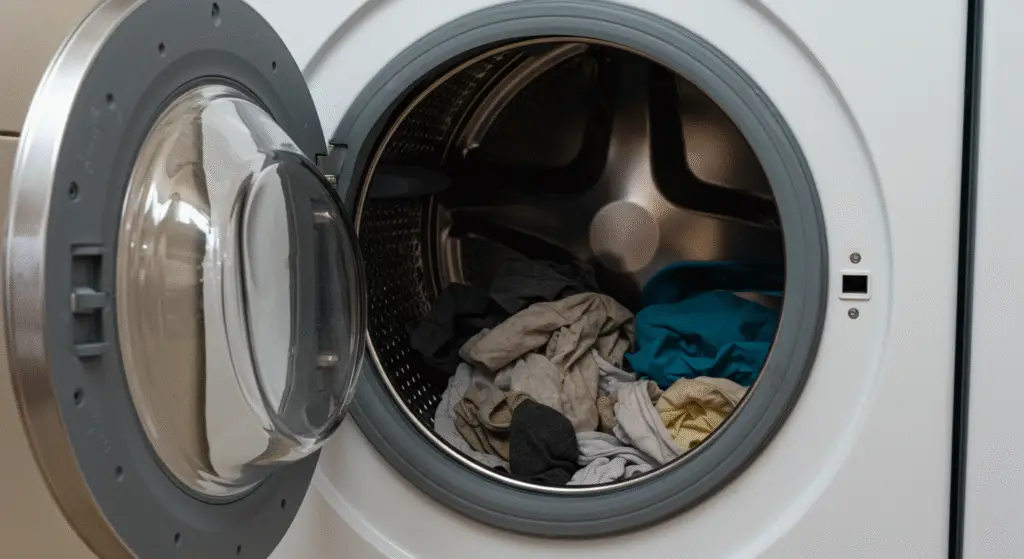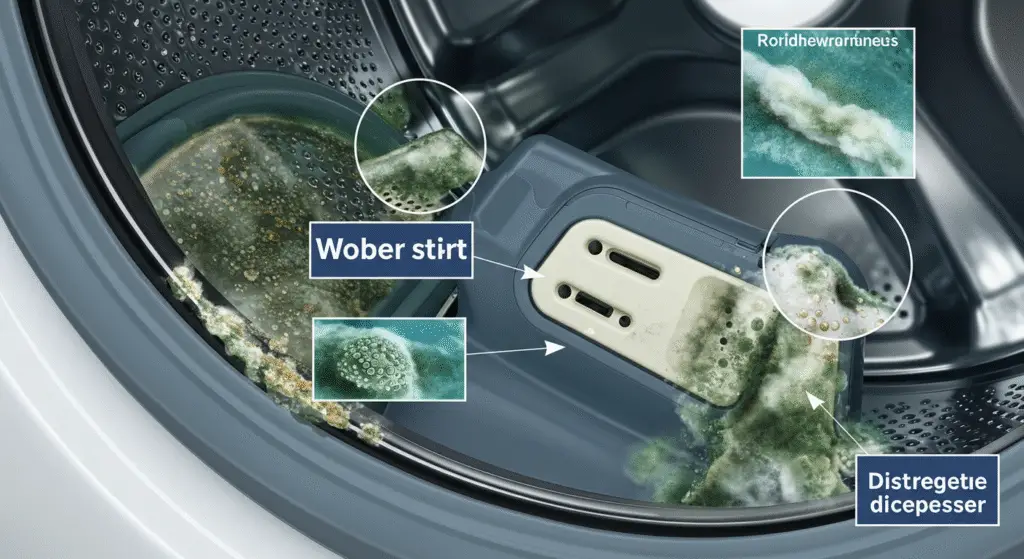
If you’ve walked into your laundry room and caught a musty or sour scent coming from your washing machine, you’re not alone. It’s a common issue for many households. You may be wondering, why does my washer smell? A smelly washer doesn’t just affect your machine—it can also leave your clean clothes with an unpleasant odor. Understanding the problem’s root and how to fix it can make a big difference in your laundry routine.
So, why does my washer smell? Let’s explore the common reasons and what you can do to keep it fresh and clean.
Common Causes of a Smelly Washer
One of the most frequent reasons for a smelly washer is the buildup of mold and mildew. Washing machines, especially front-loaders, are designed to be efficient and use less water. However, that efficiency comes at a cost: leftover moisture. When water lingers inside the machine, particularly around the rubber door seal or in the detergent drawer, it creates a damp environment where bacteria and fungi can thrive.
Another common cause is leftover detergent or fabric softener residue. If you’re using too much detergent or the wrong type for your washer, it may not rinse out completely. Over time, this residue can accumulate in hard-to-reach areas like the drain pipe, the inner tub, or around the detergent compartment. This build-up not only causes unpleasant smells but can also impact your washer’s performance.
Your washer may also smell because of a dirty drain pump filter. Many machines have a filter that collects lint, small objects, and other debris to prevent clogs. If it’s not cleaned regularly, the filter can become a source of odors. This issue is often overlooked but can be resolved with a simple cleaning routine.
Sometimes, the cause is standing water in the machine. Even a small amount of leftover water in the tub or door seal can become stale and start to smell. This is particularly true in washers that are kept closed between uses, as the lack of airflow slows down evaporation and allows bacteria to grow.
The final and often overlooked reason is poor ventilation in the laundry area. If the room is humid and doesn’t have good air circulation, the moisture from your washer has nowhere to go. This can make any lingering smells worse and keep the environment damp, contributing to future odor issues.
How to Eliminate Washer Odors
To get rid of the unpleasant smell coming from your washer, it’s important to clean it regularly and take a few preventative steps. Start by running a cleaning cycle with hot water and a cup or two of white vinegar. Vinegar is a natural disinfectant and can help dissolve mineral deposits and soap scum. For added effectiveness, you can sprinkle a bit of baking soda inside the drum before starting the cycle.
After running a cleaning cycle, take time to wipe down the inside of the machine, especially the rubber door seal. Use a clean cloth and a vinegar-water solution to get into all the folds and edges. If your machine has a removable detergent drawer, take it out and rinse it thoroughly under warm water to remove any residue.
It’s also a good idea to clean the drain pump filter. Most modern washers have an access panel near the bottom where the filter is located. Before removing it, place a towel and shallow pan underneath to catch any water. Rinse the filter well and remove any lint or debris.
Leave the washer door open when it’s not in use. This simple step allows air to circulate inside the machine and helps dry out any lingering moisture. The same goes for the detergent drawer—keep it slightly open to avoid trapped humidity.
Preventing Future Smells
Once you’ve gotten rid of the odor, preventing it from coming back is all about regular maintenance and good habits. Run a cleaning cycle once a month, using vinegar or a specialized washing machine cleaner. This will help remove any buildup and keep the interior fresh.
Be mindful of how much detergent you’re using. Stick to the recommended amount and make sure it’s labeled as high-efficiency (HE) if you’re using an HE washer. Excess soap doesn’t make your clothes cleaner—it just leaves behind more residue.
After each load, take a few seconds to wipe down the drum, door, and rubber gasket with a dry towel. It might seem like a small step, but it goes a long way in preventing moisture build-up.
Check the washer’s filter every couple of months and clean it if needed. You’ll prevent clogs and reduce the chance of any trapped debris turning sour.
If your laundry room is small or doesn’t have good airflow, consider using a fan or dehumidifier. Proper ventilation not only reduces odors but also protects your washer from moisture-related damage.

DIY Natural Cleaner for Your Washer
If you prefer natural cleaning methods, you can make an effective washer cleaner using everyday household items. Combine two cups of white vinegar with a quarter cup of baking soda. Add a few drops of tea tree oil if you like a fresh scent and added antibacterial benefits.
Pour the vinegar into the detergent drawer and the baking soda directly into the drum. Run a hot wash cycle without clothes, and follow up by wiping down the machine’s interior. This method is gentle, safe, and leaves your washer smelling clean without harsh chemicals.
When to Call in a Professional
If you’ve cleaned your washer thoroughly and still notice an odor, the issue might be deeper. Mold can grow inside internal hoses or other areas that aren’t easy to reach without disassembling the machine. In this case, it’s best to call a professional technician who can inspect and clean these internal parts or recommend a part replacement if necessary.
Persistent smells could also point to a plumbing issue, such as a clogged drain line or backflow problem. A service call can help diagnose and fix these problems before they get worse.
Final Thoughts
A smelly washer is more than just an annoyance—it’s a sign that your machine needs a little care. By understanding what causes the smell and taking regular steps to clean and maintain your washer, you can ensure it runs smoothly and leaves your laundry smelling fresh every time.
Simple habits like using the right amount of detergent, wiping down the machine after each use, and letting it air out can make a big difference. With a little effort, your washer will stay clean, odor-free, and ready for every load.
